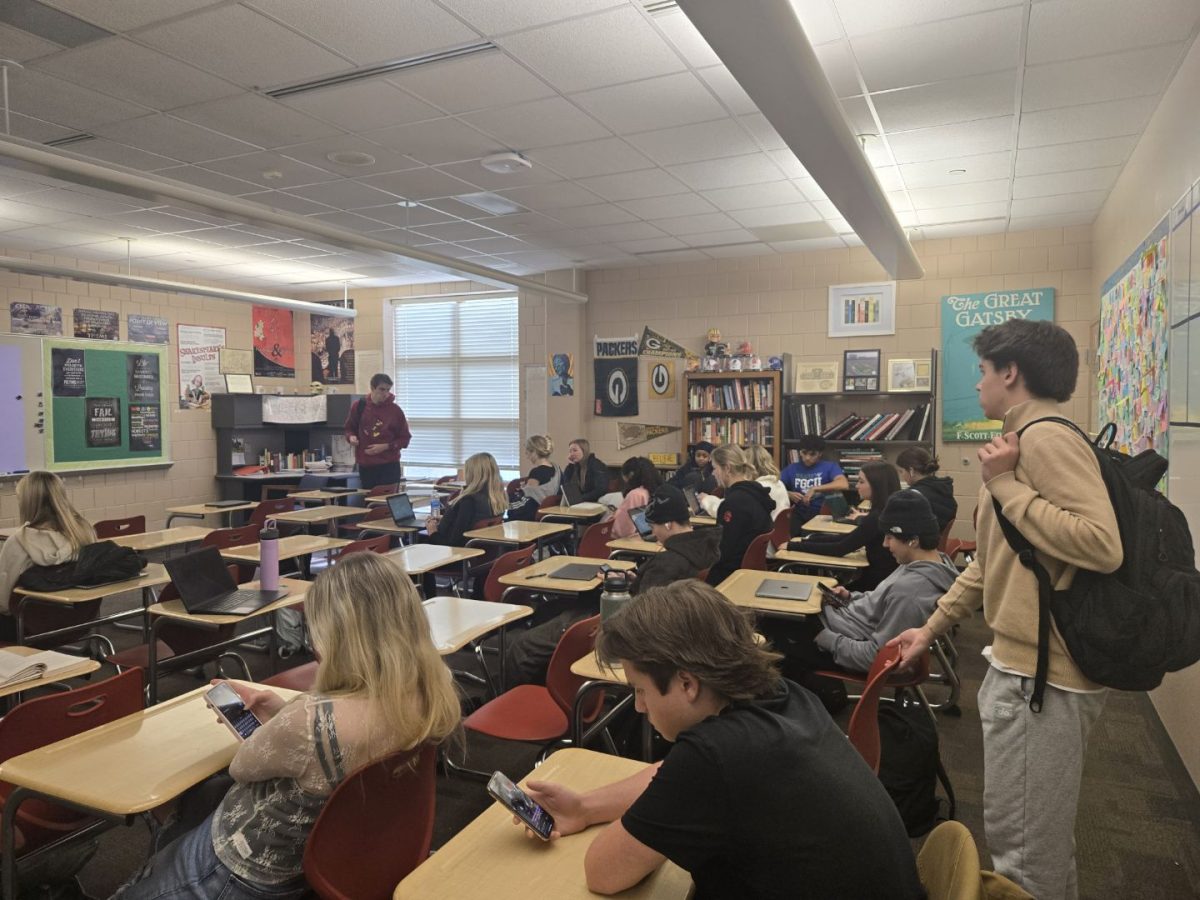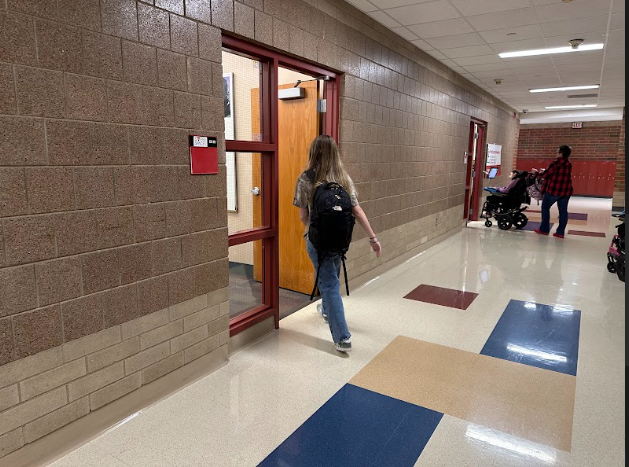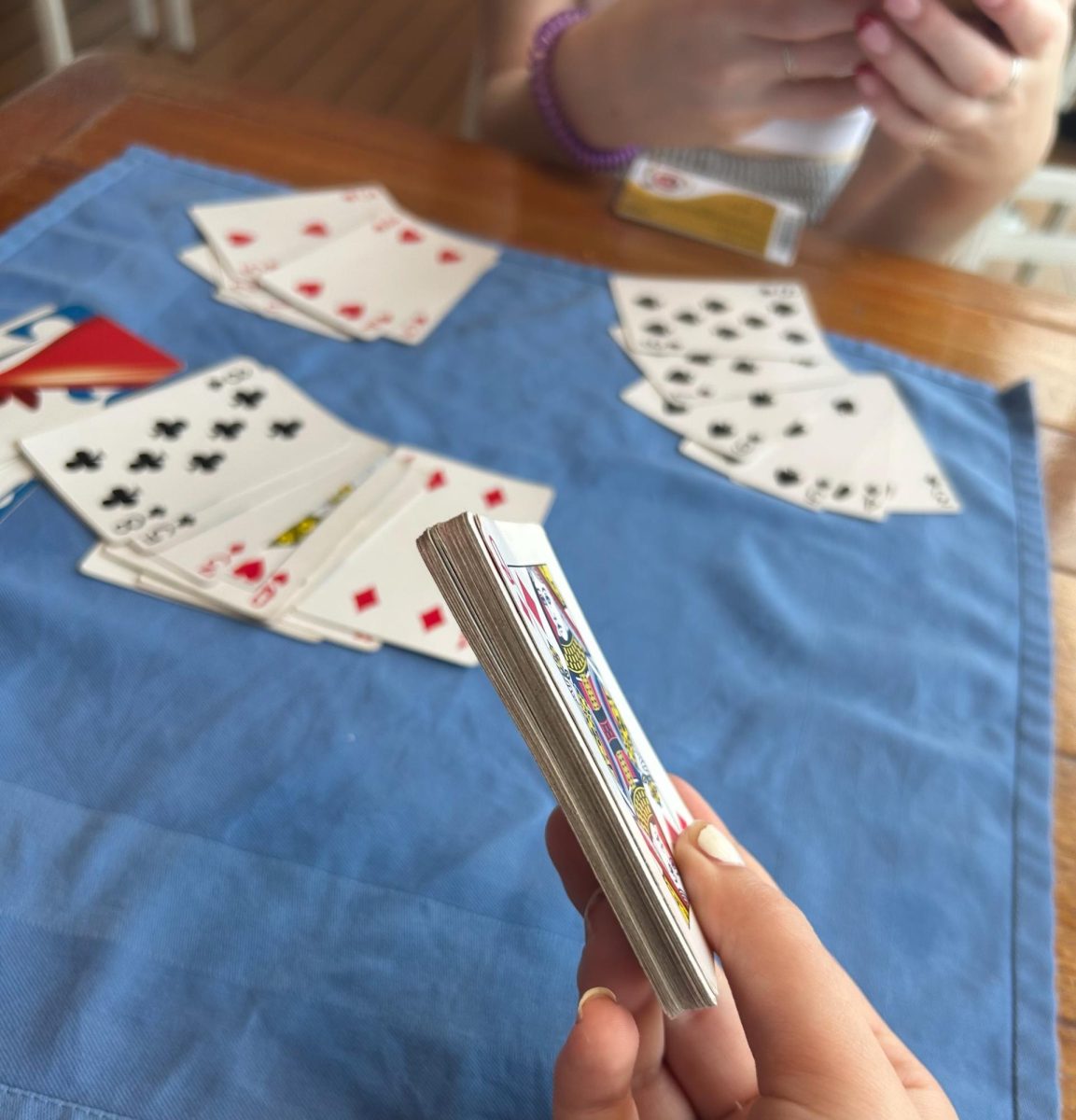The school is on a time crunch. By March, all Minnesota schools need to have a phone policy set in place. The school board needs to vote fast since the plan in place right now, barely reduces phone usage during class. At this moment the major proposal surrounding phones in Stillwater is a complete phone ban from the first to last bells of the day. Some individuals have many qualms about the proposal, but others believe this will have a very positive impact on their education.
Cheating with phones has always been a big problem; around 35% of teens admit doing so. However, the phone ban runs much deeper than a surface-level need to discourage cheating. The proposal believes phones negatively impact a student’s learning environment and mental health. Since 2010, it has been shown teen anxiety and depression levels have simultaneously increased by over 105%, and teen loneliness has doubled since 2012, after the rise of Vine, a social media platform with short-form content.
“At this time, we do not yet have enough evidence to determine if social media is sufficiently safe for children and adolescents,” Doctor Vivek Murthy said during a Social Media and Mental Health Study in 2023.
The district believes banning phones from schools will effectively help students drop the need to stress about what happens online or in students’ social media. Students will not have the constant worry of FOMO or upkeeping their social media presence. Students will be more focused on their study, theoretically reducing their overall stressors and anxiety levels. Phones are inherently designed to grab attention and keep it for long periods of time, but students cannot afford to lose hours every day on social media without drawbacks or sacrifices.
Another major reason for considering this proposal involves school crisis situations. As a parent, it would be terrifying to know the school had to enter a lockdown but be unable to immediately check in with their children: to know with certainty they are safe. After all, phones are meant for easy communication; why would families not take advantage of that? However, phones actively inhibit police from being able to do their jobs. The sudden influx of messaging jams up communication lines and congests the parking lot with parents attempting to “save” their child from the school altogether.
The Pony Express Advisor explained, as a parent, she holds a certain frame of mind around her child’s safety. Yet, as an educator, she enters a completely different state of mind, one of school safety as a priority.
If the proposal passes, it assists law enforcement during their jobs, actively keeping students more safe than if phones were still allowed on grounds. After all, the district already sends out emails in the event of a crisis. Is the extra bit of communication necessary between parent and student if it only endangers their safety?
Many students hold resentment towards the policy, thinking it more of a punishment than a step towards better learning. Data shows at least 97% of kids use their phones at school, and 65% of students report they are distracted by their devices from a 2023 phone report.
While phones are more “predatory” towards dopamine, a complete ban of them would not help the school, students explained. Once people get to college, they will not have had any opportunities to practice self-discipline with devices, leaving us unprepared.
Some drawbacks do exist for the proposal, as they would with any plan, but overall, the district still maintains high hopes for its potential. With high student resentment against the ban and multiple studies/statistics corroborating the proposal.
So far, the school board has a lot of changes in mind for next year: adopting a late start and a new phone policy. Many people can dislike the new rules, but all we can do is keep an open mind until we see how positively or negatively the school adapts. Holding a positive attitude will give people power over their circumstances, instead of letting circumstances hold power over their lives.









